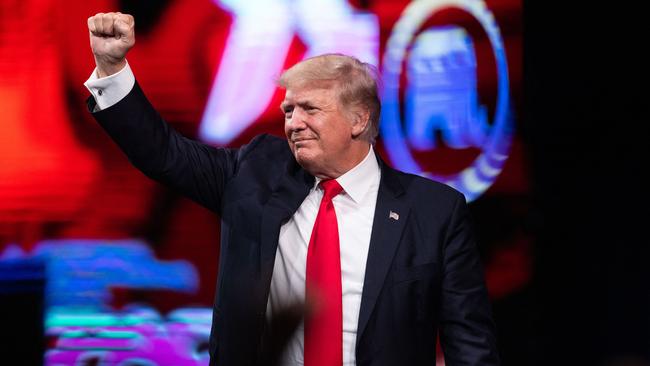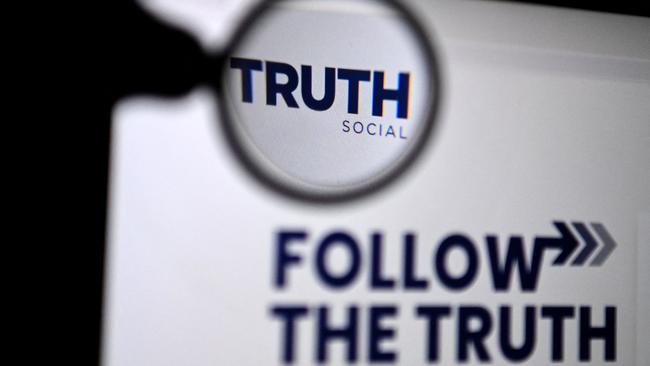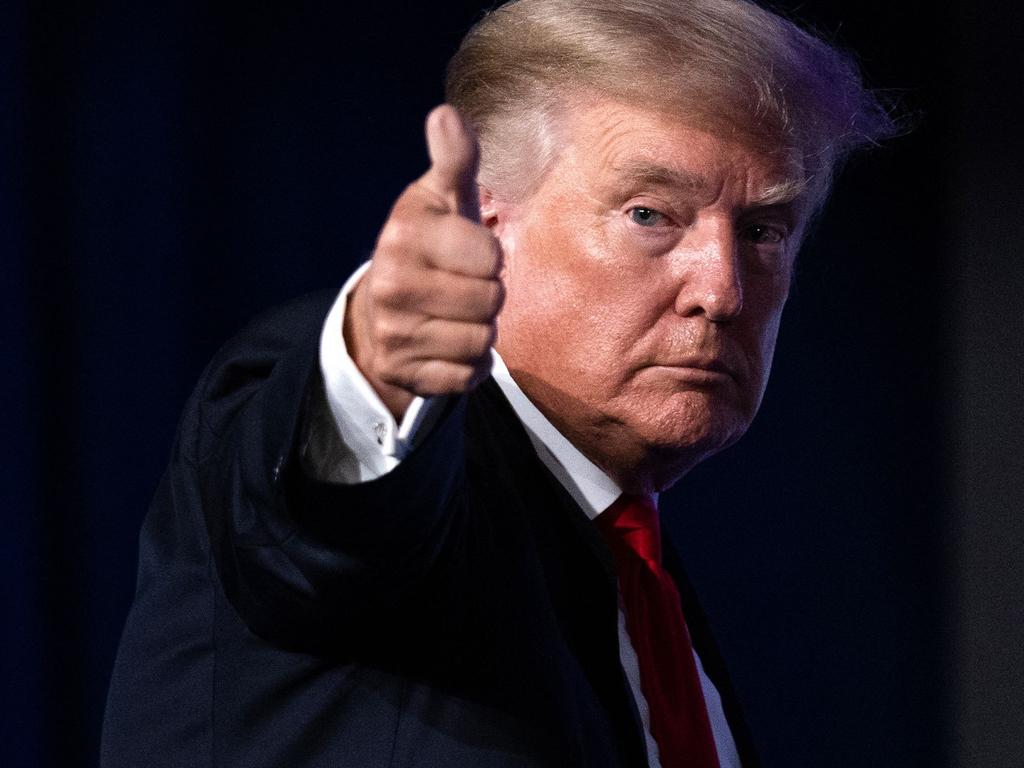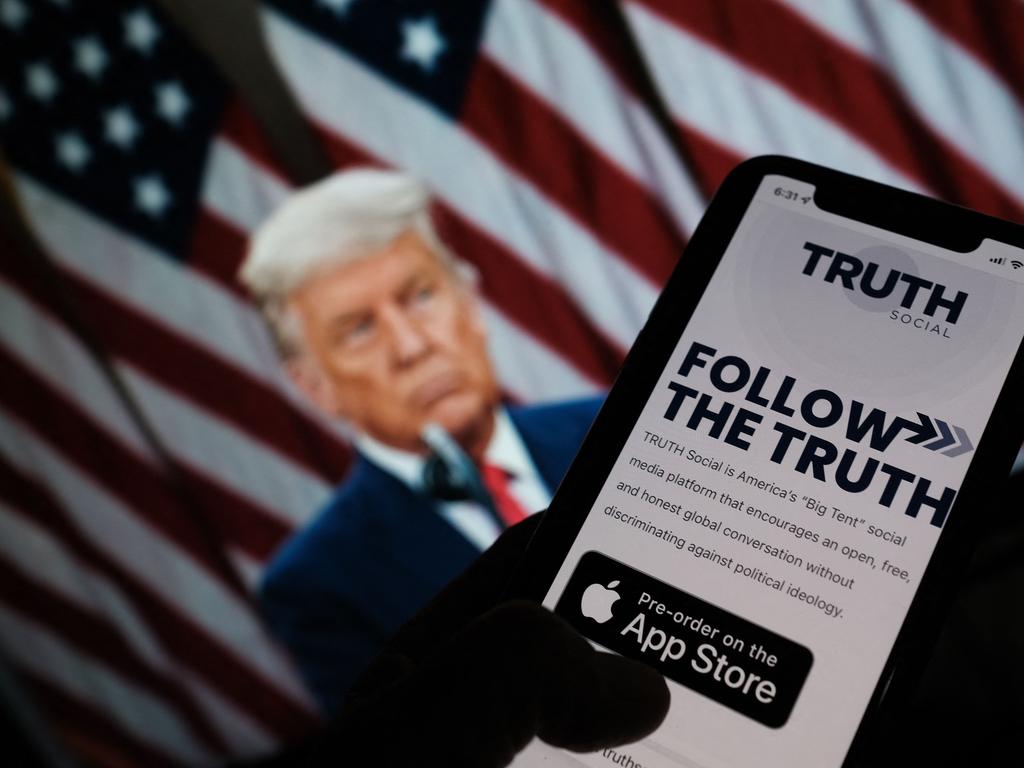Will Donald Trump’s media startup Truth Social pay off?

Meme stocks, in this newspaper’s pithy summary, are those that “become wildly popular among online traders for reasons other than their business prospects”. But the new Trump business, currently known as Digital World Acquisition Corp, is a startup. It has no existing business to analyse, only its unknown potential. Thus there’s no real basis for leaping to the assumption that the market is merely irrational in valuing the company between $US2bn ($2.66bn) and $US8bn, the trading range it has occupied since debuting a week ago.
Why might some think this a reasonable ballpark especially compared with other highly speculative business valuations the market has embraced, such as Tesla’s? The reason might jump out at you if you think about it. If he plays his cards right, Trump has a way of capturing a portion of the enormous value he has been creating for other media outlets, from the New York Times to MSNBC.
How might an analyst begin to eyeball the riches up for grabs? In the 2016 election, Trump was estimated by the data analytics firm mediaQuant to have generated $US5bn in free media coverage, twice as much as Hillary Clinton, whom we might take to be representative of a normal candidate. So that’s $US2.5bn in extra attention media outlets gave Trump in pursuit of ad dollars for themselves.

After his 2016 victory, cable-news ratings and ad sales didn’t enter their customary postelection free fall. MSNBC would go on to have its best year ever. This year, prime-time ratings are down more than 50 per cent at CNN and MSNBC and 37 per cent at Fox — the collective equivalent of $US500m in lost profits thanks to less Trump.
Or take the “failing” New York Times. Its stock was up fourfold due largely to what industry consultant Ken Doctor calls the Trump bump. The 170-year-old newspaper saw its subscribers increase to 7.5 million from three million; the 144-year-old Washington Post, another Trump foil, saw its own numbers triple.
You would be right to harbour doubts about whether Trump can put in place a management team to realise any of this implicit value across the digital sectors he’s targeting, from social media and streaming to podcasts. His partners are mostly unknown financial engineer types. His turn as head of a publicly traded casino company in the 1990s was a catastrophe for shareholders.
Then again, monetising his peculiar synergy with hostile media outlets has been his apparently successful business model since leaving the White House, mainly through merchandise sales and campaign donations, albeit with only peanuts going to him compared with what his silent media partners still are able to generate by flogging his visage to their audiences.
A SPAC, or special purpose acquisition company, to refresh your memory, is a particular kind of stock. A listed entity with no assets attracts funding from investors in anticipation that it will buy potentially valuable assets with the money.
Some reports, in analogising the Trump SPAC to a meme stock, note that its subsequent trading has been considerably above the $US875m value assigned in Trump’s own press release announcing the deal. It’s far from unusual, though, for investors in the stock market to put a different value on a novel business proposition than accountants would.
As with every business, there’s execution risk, but the potential is here because of the irresistibility of Trump to the mainstream media. He doesn’t have to be especially astute to know they will quickly enter into a voyeuristic relationship with his new outlets, driving traffic to his offerings even as they rationalise their actions by disapproving and disparaging him, which only serves to cycle up more traffic for both parties in the strange marriage of Trump and his media revilers.
If he plays it right, Trump could be laughing all the way to the bank — and so could his mainstream media partners, even as they flail around in cognitive dissonance because of their codependence with Trump.
Worth considering is one more outcome. Trump, whose ownership of the new company is estimated to be 50 per cent or more, only now seems to have discovered the knack other ex-presidents have found for turning their White House stints into pots of gold (his own tour until last week had been a disaster financially). With a promising new online media empire to watch over, he might well decide not to run in 2024 because he’s found a safer way to satisfy his quest for attention.
The Wall Street Journal







There’s one problem with the stream of reporting likening the new Donald Trump digital startup to “meme stocks” such as GameStop or the AMC movie chain, whose share prices exceed what even the most forgiving Wall Street analysts are willing to rationalise.